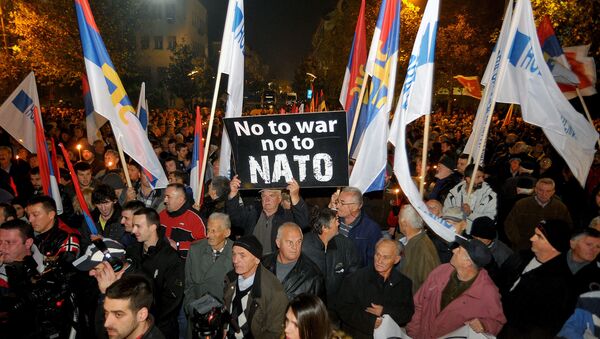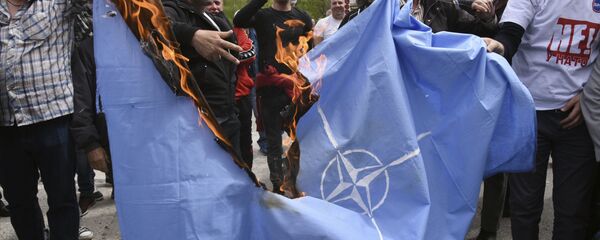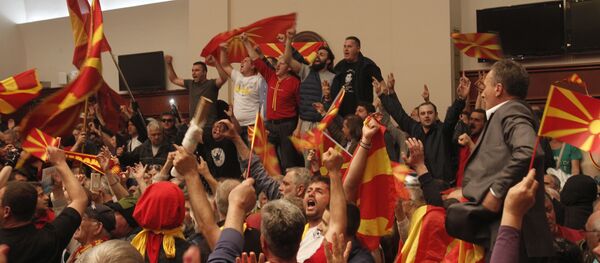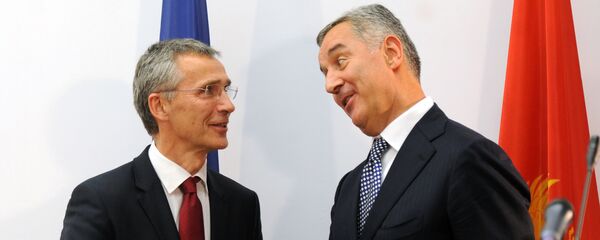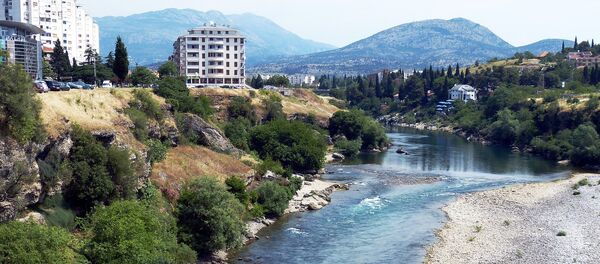"Today, we are also formally becoming a part of the most powerful and most successful alliance in history which decides on the most important issues of today’s world," Markovic said.
Montenegro was invited to join the 28-nation military alliance in December 2015. Montenegrin authorities accepted the invitation that caused protests in the Balkan nation. On May 19, 2016, NATO member states signed the accession protocol. According to NATO's website, the accession process is expected to finish by June 2017.
On April 25, US President Donald Trump signed the protocol on Montenegro’s accession to NATO, which was the final step in ratifying the document. On May 19, 2016, NATO member states signed the accession protocol.
In an interview with Radio Sputnik, Dmitry Solonnikov, director of the Institute for Modern State Development, noted that Montenegro’s military contribution for NATO would be insignificant.
"For NATO, this accession is rather a demonstrative gesture. This is a PR and psychological move. The Montenegrin military is unlikely to plan an important role in the NATO military force. It is a drop in the bucket. On the other hand, it is aimed at influencing the post-Yugoslavian nations, first of all Serbia," Solonnikov pointed out.
"It is rather a political than military threat. Pressure is expected to further mount over Serbia. Macedonia will likely be invited next to NATO. We’re witnessing a gradual expansion of NATO in countries that were never in the sphere of its interests. This is a steppingstone for NATO’s further expansion to the east," Solonnikov said.
Russia has repeatedly expressed concerns over the further expansion of NATO to the east. Last month, the Russian Foreign Ministry criticized the political course of Montenegro that sees them joining the alliance without holding a nationwide referendum.
"This is a geopolitical project at its finest, it does not strengthen the security of NATO, it is obvious. It probably leads to additional expenses for NATO countries because Montenegro will need to be developed in military and technical terms," Lavrov said Tuesday.
Earlier this week, US Assistant Secretary of State John Heffern accused Russia of attempts to interfere in the Montenegrin election to derail the country’s accession to NATO.
He also once again claimed that Moscow was involved in the alleged coup attempt in Montenegro.
Montenegrin journalist and political writer Matija Nikolic told Sputnik that currently there is an anti-Russian and pro-NATO information campaign in Montenegro.
"A large number of people in our country are against NATO. The government has launched an information campaign portraying Russia as evil. They want to convince people that NATO will bring prosperity to the country while Russia was allegedly involved in a coup attempt. This campaign is aimed at imposing anti-Russian sentiments. They use such speculations as an attempt to prove that NATO is paradise," Nikolic said.

